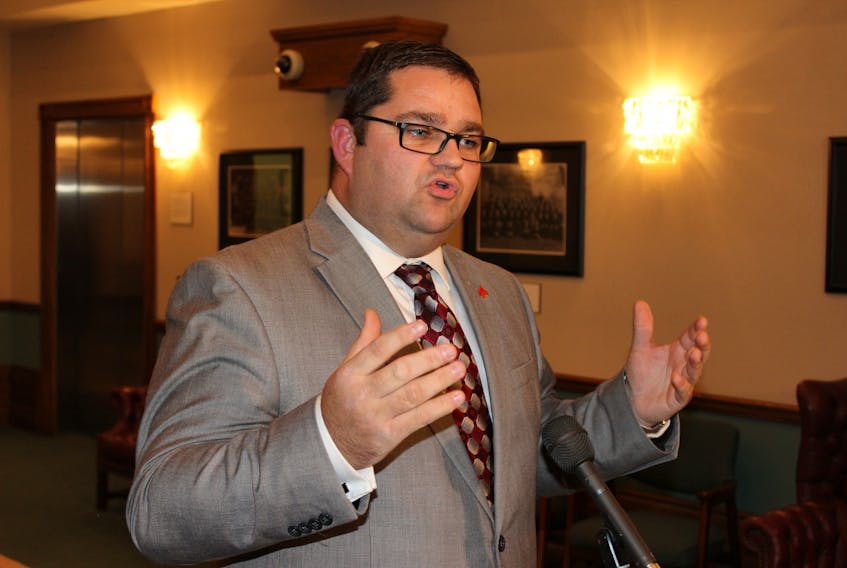After a two-year lockout at D-J Composites in Gander, the provincial government is going to ask the public what should be done to prevent such extended labour disputes in the future.
On Monday, Unifor announced the arbitrator appointed to end the dispute had sided with the company’s final offer, finally ending the strike.
During question period on Monday, NDP Leader Gerry Rogers raised the question of “anti-scab” legislation – whether the government would support a provincewide ban on replacement workers being brought in during a labour dispute.
Advanced Education, Skills, and Labour Minister Bernard Davis didn’t commit to introducing such legislation on Monday, saying the government has started public consultations on how best to limit the length of labour disputes in the future.
While it’s easy to guess how unions and the business community likely stand on the issue, Davis says the matter is too important for the government to make a decision on without public consultation.
“We have to make sure we have all the information we can have to make the best decision."
“We want to hear from all sides.”
— Bernard Davis, Minister of Advanced Education, Skills, and Labour
Davis says he’s not going to take a position on the measure before the public consultations begin. He says everything is on the table – including the status quo.
“Ninety-five per cent of labour disputes are solved between the two parties involved, in our province. We’re trying to make changes based on five per cent of the time,” he said.
“To do nothing is always an option.”
There’s no timeline in place for the consultations, only to say the outcome will be known in the new year.
The New Democratic Party has previously called for the legislation in 2012, but it didn’t go anywhere. Now, Rogers says it’s time to make the change.
“Our labour laws are not robust enough to deal with situations like we’ve seen with D-J Composites,” said Rogers, referring to a report commissioned by the government in 2010 regarding labour laws in the province.
“It prolongs difficult labour disputes. Replacement workers or scab workers prolong that. It takes away a level playing field.”
— Gerry Rogers, leader of the NL NDP
Unifor pointed to replacement workers as one of the main reasons for the extended strike in Gander. Unifor went as far as creating social media content identifying the specific replacement workers brought in by D-J Composites, in an attempt to shame the workers and apply pressure on the company. Unifor was roundly criticized for the move, including accusations of invading the privacy of the replacement workers.
“Anti-scab” legislation has been discussed on the federal level as recently as 2016, with the federal NDP introducing a motion. The motion was later defeated by the House of Commons. British Columbia and Quebec both have anti-scab laws, which came into effect in 1993 and 1977, respectively. Ontario introduced anti-scab legislation in 1993, only to repeal it in 1995.
Twitter: @DavidMaherNL









